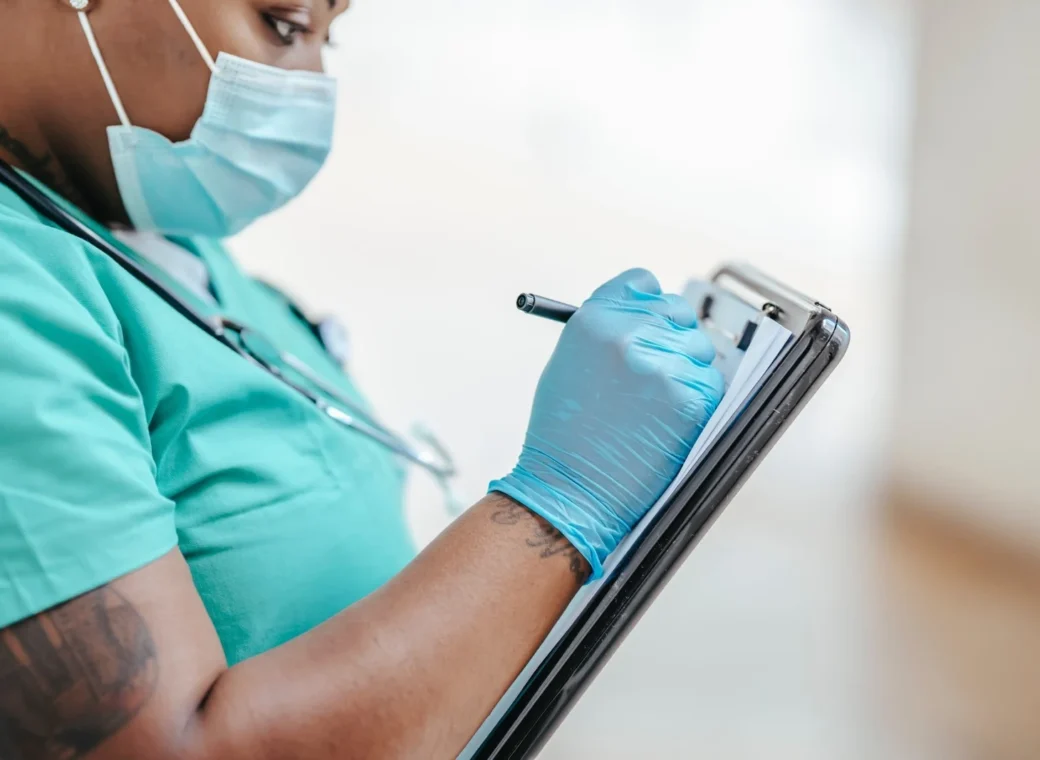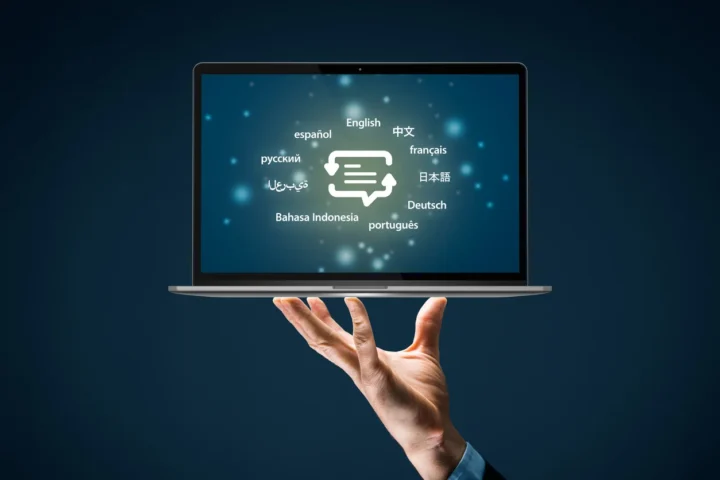In our rapidly evolving world, where artificial intelligence is breaking down language barriers like never before, the healthcare industry faces a unique challenge. How can the industry as well as medical professionals harness the power of AI enabled machine translation while ensuring compliance with stringent privacy laws like HIPAA? It’s like trying to catch lightning in a bottle – complex, daunting, but potentially transformative.
This article looks into HIPAA-compliant translation apps, exploring their role in the healthcare industry, their advantages, and why they might just be the best way forward.
HIPAA Translation Regulations Surrounding Interpreters
The Health Insurance Portability and Accountability Act (HIPAA) of 1996 is a federal law that required the creation of national standards to protect sensitive patient health information from being disclosed without the patient’s consent or knowledge. HIPAA regulations have long had significant privacy and data protection implications for healthcare professionals and organizations. HIPAA’s Privacy Rule protects patients’ health information while permitting the data flow required to provide high-quality healthcare and protect public health.
HIPAA regulations ensure that private health data doesn’t get lost or arbitrarily shared within healthcare settings. As part of HIPAA, when patients prefer to communicate in a different language than English, medical interpreters are mandated to ensure that patients and healthcare providers understand each other. This can be a major boon for patient and caregiver rapport, at a cost healthcare providers can easily justify.
 HIPAA and Interpreters
HIPAA and Interpreters
HIPAA isn’t just about securing your health records; it also safeguards communication between patients, medical professionals and healthcare providers. Here’s what HIPAA regulations say about medical interpreters:
- Role of Interpreters: HIPAA mandates the use of interpreters in healthcare settings. These professionals bridge the gap between healthcare providers and patients, ensuring clear and accurate communication in the patient’s native language.
- Privacy and Confidentiality: Interpreters are bound by HIPAA rules to maintain the privacy and confidentiality of the patient’s health information. Breaking these rules could lead to serious consequences.
- The Need for Compliant Tools: HIPAA compliance extends to the tools used by interpreters. Therefore, any translation tool used in a healthcare setting must also adhere to HIPAA rules.
Now, let’s step into the future – or, rather, the present. Machine translation – with the most publicly known representative being Google Translate – has been around for a while, but its use in the medical field in removing language barriers was all but a non-starter until about a decade ago.
Back then, it was particularly tough to translate complex medical jargon in clinical settings using a tool that, because of the limits of rule-based translation, often struggled with often basic sentences! Although that was then, and things have changed: machine translation has come a long, long way when it comes to offering fast and accurate translation. The technology has taken a major step forward, and is now more powerful and accurate than ever, reducing human interpreter exposure and opening new doors for elevated communication efficiencies in the healthcare space.
Most Translation Applications (Online Portals) are NOT HIPAA Compliant
There’s a twist, though. The popular online translation tools many of us use to understand foreign menus or decipher song lyrics? These existing systems are typically not HIPAA compliant. That’s right, Google Translate and Microsoft Translator, among others, don’t actually meet the privacy standards that HIPAA compliant translation devices require.
In contrast, HIPAA-compliant translation applications like SYSTRAN offer a secure Neural Machine Translation (NMT) solution. NMT can be either a replacement for medical interpreters in some applications (resulting in tremendous cost savings), or a tool for human interpreters that reduces the risk of HIPAA violations by ensuring privacy and confidentiality. SYSTRAN’s data security policies are crafted to meet the rigorous demands of HIPAA, ensuring that sensitive patient data is handled appropriately and securely.
While Language Service Providers (LSPs) remain an option in some healthcare scenarios that do not involve direct communication, they are not immune to breaching HIPAA regulation breaches. Human error, a lack of training, or issues in data handling procedures can lead to inadvertent violations. Therefore, while LSPs and interpretive services play a crucial role in a clinical setting, they also introduce risk to the process.
Benefits Of Using NMT in Healthcare
Recently, the media has been quite aggressive in discussing how AI is changing the game in many industries. But have you ever stopped to think about its impact on translation, particularly in the healthcare sector? Well, it creates more relationship building opportunities, generates more accurate translations, and tremendous cost savings – making it a real game-changer.
Healthcare companies have to tread carefully when navigating the HIPAA minefield. Even a simple task like healthcare workers translating patient records and documents does have the potential to become an intricate dance of compliance. That’s where secure translation software like SYSTRAN comes into play.
A major advantage of using a secure translation software like SYSTRAN is its compatibility with the current regulatory environment. Healthcare organizations need to navigate intricate HIPAA laws when dealing with patient data translations, making a HIPAA-compliant solution like SYSTRAN incredibly valuable.
Often, language barriers receive very little focus when it comes to patient communication, but translation software applications that meet HIPAA standards and offer access anytime can eliminate wait times, offer greater comprehension and increased satisfaction for all patients. Bilingual coworkers no longer face specialized scheduling requirements, first responders can speak directly using a speech translation app and even English speaking families receive faster services from medical professionals.
Additionally, SYSTRAN can come equipped with preloaded medical industry-specific translation dictionaries. This means they can accurately translate complex medical terminologies, making them ideal for healthcare organizations with regular medical translation needs. The end result is a more efficient, accurate, and compliant translation process.
It’s no longer necessary to imagine a world where you have a HIPAA-friendly translator at your fingertips – it’s not just a dream anymore; it’s a reality with SYSTRAN Translate PRO, Translate Enterprise and SPNS.
Conclusion
So is a HIPAA-compliant translation app the way forward for healthcare companies?
In a setting where removing language barriers can mean the difference between life and death, effective communication is paramount. Neural Machine Translation – AI Enabled Translation – offers a critical tool for healthcare organizations grappling with interpreter shortages and HIPAA compliance issues.
In short, these AI-powered translators are not just an excellent choice – they’re a necessity for immediate communication for healthcare workers in clinical settings. They’re the bridge connecting patients, healthcare teams and interpretive services, ensuring understanding, accurate translation, privacy, and compliance.
Here’s to a future where language is no longer a barrier in healthcare but a bridge to better care for multilingual communities. A future where HIPAA compliance isn’t a hurdle but a guarantee. And a future where healthcare companies can focus on what they do best – healing and helping – with the peace of mind that their translation needs are in safe, secure, and smart hands.
Choose SYSTRAN
SYSTRAN is a global leader in text and speech translation apps and is the best option for translating medical notes. The server is customizable to your needs, with medical and healthcare models available that are designed to translate complex medical terminology. Once the server is installed, it is protected by your existing data security processes, and no information is ever transmitted or shared.
Contact us today to learn more about SYSTRAN translation services and how they can help with medical document translation.






